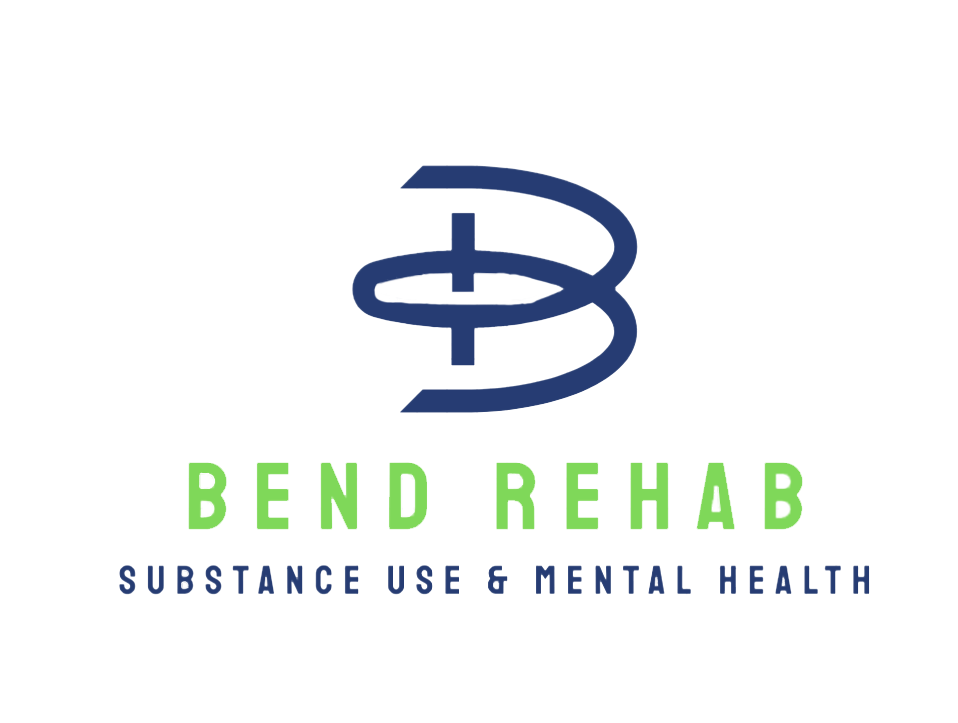Why Teen Rehab in Bend Oregon Is Worth Considering
Teen substance use and mental health struggles are increasingly urgent issues in communities across the nation, and Bend, Oregon is no exception. With its unique combination of outdoor culture and growing urban population, addressing challenges faced by teens in this area requires a compassionate and nuanced approach. This blog will explore why teen rehab in Bend Oregon is vital, highlighting the growing need for treatment, the benefits of early intervention, and the resources available to support youth. If you’re a parent, educator, or counselor, this guide will offer actionable insights and encourage you to play an active role in shaping a healthier future for the next generation.
The Growing Need for Teen Rehab in Bend Oregon
Substance abuse among teens is a growing concern nationwide, but certain conditions in Bend, Oregon, have magnified the problem locally. Factors such as limited access to mental health resources, the influence of peer pressure, and the availability of substances in the area have contributed to the issue. Parents, educators, and community leaders are working together to address these challenges and provide better support for teens at risk.
1. Rising Teen Drug and Alcohol Use
According to recent statistics, Oregon has one of the highest rates of cannabis use among teens, much of which has been linked to statewide recreational marijuana legalization. A 2021 report by The Oregon Behavioral Health Data Platform found that 14.5% of adolescents in the state reported using marijuana in the past month—well above the national average. Additionally, alcohol use remains another prevalent issue among teens in Bend. Social events, peer pressure, and easy access make it challenging for teens to resist experimenting, leading some to substance dependencies that later require intervention.
2. Impact of Legalization and Social Media
Bend’s location in Oregon, a state that has embraced recreational cannabis legalization, makes marijuana more accessible and socially normalized. While these measures aim to regulate safe usage, they unfortunately increase the risks of initiating use at a young age. Furthermore, social media platforms only add fuel to the fire. Teens are exposed to glamorized portrayals of drug and alcohol use, often idealized by influencers or peers. This amplifies curiosity and heightens the need for teen rehab in Bend Oregon.
Understanding the Unique Challenges Teens Face Today
Adolescent substance abuse rarely occurs in isolation; instead, it’s often deeply connected to a broader range of challenges, such as mental health struggles, family conflicts, peer pressure, and academic difficulties. Mental health issues like anxiety or depression can push teens toward substance use as a way to cope, while strained family relationships or a lack of support at home may contribute to their vulnerability. Peer pressure can further reinforce these behaviors, as teens often feel compelled to fit in or gain acceptance. Academic challenges, such as failing grades or stress from school, can also play a significant role. These interconnected issues can create a complex cycle, making it even harder for young people to seek help or break free from harmful patterns, as each problem feeds into the others. Recognizing this intricate web is crucial for providing effective support and interventions.
1. The Link Between Mental Health and Substance Use
Teens today are navigating a mental health crisis with rising diagnoses of anxiety, depression, and trauma-related disorders. The Centers for Disease Control and Prevention (CDC) recently reported that approximately 1 in 5 U.S. teens had seriously considered suicide in 2022. Many teens turn to drugs or alcohol as coping mechanisms, creating a vicious cycle that worsens their mental health.
2. Academic & Societal Pressures
Heightened competition in academics, increased involvement in extracurricular activities, and societal pressure to excel can create a perfect storm of stress and burnout for teenagers. Many face the relentless expectation to perform well in school, maintain a busy schedule, and meet the high standards set by their families and peers. Without proper coping mechanisms or support systems in place, these pressures can feel overwhelming. In some cases, teens may turn to substance use as a way to escape or numb these intense emotions, seeking temporary relief from the weight of their responsibilities and expectations.
3. The Danger of Leaving Issues Untreated
Left untreated, mental health struggles during adolescence can snowball into long-term problems, affecting relationships, education, and overall well-being. Early intervention offered through teen rehab programs plays a crucial role in not only helping teens stop substance use but also addressing the root causes of their challenges. These programs provide a safe and supportive environment where teens can develop healthy coping mechanisms, build emotional resilience, and receive treatment for underlying mental health conditions like anxiety, depression, or trauma. By addressing these issues early, rehab programs help prevent them from escalating into more serious problems later in life, setting teens on a path toward a healthier, more balanced future.
Benefits of Early Intervention Through Teen Rehab in Bend Oregon
Addressing substance abuse and emotional distress early in a teen’s life can lead to life-changing outcomes, allowing them to develop healthier coping mechanisms and improve their overall mental well-being. By identifying these challenges early, parents, educators, and mental health professionals can provide the support and resources teens need to navigate difficult emotions and situations. Early intervention not only helps prevent long-term mental health and behavioral issues but also fosters resilience, confidence, and a sense of stability. This creates a strong foundation for a brighter future, enabling teens to thrive academically, socially, and emotionally while reaching their full potential.
1. Preventing Long-Term Addiction
When destructive patterns of substance use are addressed early, the likelihood of teens developing life-long addictions significantly decreases. Early intervention allows families and professionals to identify the root causes of these behaviors, such as peer pressure, mental health struggles, or environmental factors. Structured rehab programs play a crucial role in breaking these cycles by offering tailored support, therapy, and education, helping teens build healthier coping mechanisms and set a strong foundation for a brighter future before these issues persist into adulthood.
2. Improving Mental Health Outcomes
Teen rehab programs combine structured support with evidence-based therapeutic approaches, such as cognitive-behavioral therapy (CBT), to address both substance use and co-occurring mental health conditions like anxiety or depression. By integrating therapy with counseling, peer support, and skill-building activities, these programs provide a comprehensive approach to recovery. This multifaceted care not only helps teens break free from substance dependency but also equips them with tools to manage their emotions, build resilience, and develop healthier coping mechanisms for long-term well-being.
3. Enhancing Family Relationships
Rehabilitation often incorporates family therapy, which plays a crucial role in helping restore trust and open communication within the household. Through guided sessions, family members address underlying issues, learn healthier ways to express emotions, and build a stronger support system. Parents, in particular, gain essential tools to support their loved one’s recovery journey effectively, such as understanding triggers and creating a stable, encouraging environment. These efforts not only strengthen relationships but also help reduce the risk of future relapses, promoting long-term healing for everyone involved.

Types of Teen Rehab Programs in Bend, Oregon
Bend, Oregon is home to several rehab programs designed to meet the diverse needs of teens. Whether your family is looking for intensive 24/7 care or outpatient flexibility, there are options here to meet your needs.
1. Inpatient vs. Outpatient Programs
- Inpatient Programs offer 24/7 monitoring, ideal for teens needing comprehensive support in a controlled, substance-free environment.
- Outpatient Programs provide treatment while allowing teens to live at home, making it a great option for those with mild to moderate dependency.
2. Specialized Programs
From alcohol abuse to vaping, Bend offers specialized programs designed to address specific substances or behaviors. Each program is carefully crafted to meet the unique needs of teens, providing them with tools and support that directly target their struggles. This personalized approach not only helps teens better understand the root causes of their behavior but also equips them with strategies to overcome challenges and build healthier habits for the future.
3. Holistic Approaches
Given Bend’s scenic beauty, many rehab centers take advantage of the natural surroundings to incorporate outdoor activities, yoga, meditation, and adventure therapy into their treatment programs. These activities not only promote physical well-being but also help foster a sense of calm and connection to nature, which can be vital for emotional healing. When combined with traditional therapeutic methods, such as counseling and group therapy, this holistic approach can be especially effective in helping teens reconnect with themselves, build confidence, and develop healthier coping mechanisms for the challenges they face.
Success Stories from Teen Rehab Programs
One of the most powerful motivators for seeking treatment is the success of those who’ve walked this path before.
- Teen Testimonial: A 16-year-old in Bend shared, “I thought my parents were overreacting when they sent me to rehab. Now I see just how much sobriety has changed my life—I’m finally excited for the future.”
- Family Transformation: Families participating in joint therapy report better communication, mutual understanding, and a stronger support network after going through a rehabilitation program together.
Notably, studies show that 80% of teens who complete rehab programs and receive follow-up care remain substance-free after five years.
1. Addressing Stigma
Discussing rehabilitation or mental health can feel intimidating due to the societal stigma that often surrounds these topics. Many individuals fear judgment or misunderstanding, which can prevent them from seeking the help they need. However, education and open, honest conversations play a crucial role in breaking down these barriers. By fostering understanding and empathy, we can normalize the importance of mental health care and rehabilitation, creating a more supportive environment for those in need.
2. Financial Support
Navigating the cost of treatment can be challenging, especially when trying to find the right care for yourself or a loved one. Many rehab centers in Bend work with a variety of insurance plans to help cover expenses, making treatment more affordable for those in need. Additionally, some facilities offer sliding-scale fees based on income, ensuring that services remain accessible to individuals from all financial backgrounds. These options aim to make quality care available to as many people as possible, removing financial barriers to recovery.
3. Encouraging Teens
Teens might resist the idea of rehab initially, often due to fear, stigma, or misunderstanding about what the process involves. However, by creating a supportive and non-judgmental environment, parents and counselors can help ease their concerns. Open communication, patience, and emphasizing the potential benefits—such as improved mental health, stronger relationships, and a brighter future—can make a significant difference in encouraging their participation. It’s also important to involve them in the decision-making process to help them feel more in control and invested in their own recovery journey.
What Parents, Schools, and Communities Can Do
Rehab programs alone cannot shoulder the responsibility of tackling substance abuse and mental health crises.
For Parents
- Recognize red flags of substance use early, such as sudden behavioral changes.
- Foster open and honest conversations, where teens feel comfortable sharing their struggles.
For Schools
- Implement substance abuse prevention programs within curriculums.
- Establish partnerships with local rehab centers to expedite access for struggling students.
For the Community
Bend’s supportive spirit makes it well-equipped for grassroots change. The close-knit nature of the community fosters collaboration, allowing local organizations to join forces in advocating for better-funded rehabilitation programs that address the root causes of addiction. These groups can also create emotional and financial support networks for families in need, offering resources such as counseling, peer support groups, and emergency assistance. By coming together, Bend’s community can drive meaningful change and provide a stronger safety net for those who need it most.
Conclusion
Teen rehab in Bend, Oregon, is not just a service—it’s a lifeline. From addressing the challenges faced by this generation to enabling long-term success for families and communities, rehabilitation programs are an investment in our collective future. Parents, educators, and community members must champion these services, advocating together for better access, reduced stigma, and early intervention. Teens deserve not only our compassion but also concrete action to secure their paths toward healthier and brighter tomorrows. Take the first step by reaching out to us today by calling 1 (541) 802-7214 or clicking Bend Rehab. A brighter future for the next generation starts here.




